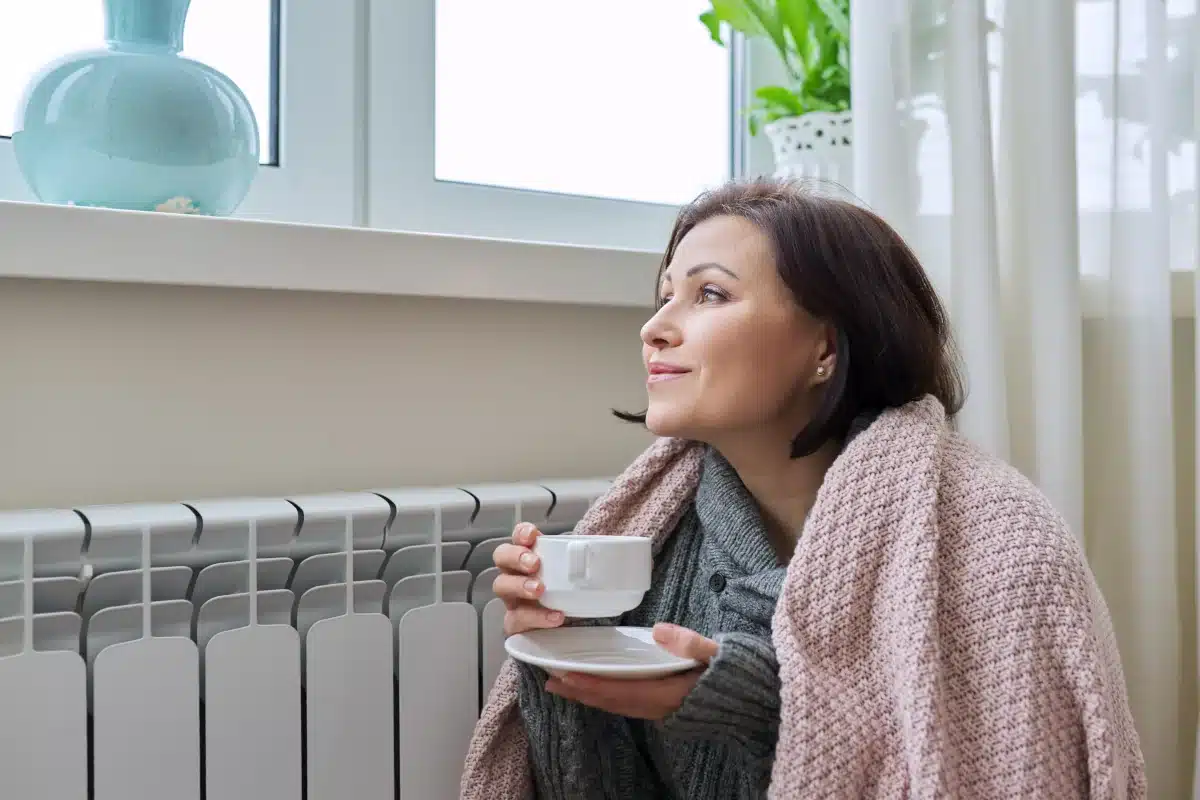
Essential Tips for Homeowners
As winter arrives, the cold air reminds us to turn on our home heating systems. But before we get too comfortable, let’s discuss essential heating safety tips for winter. While not as fun as holiday planning, it’s essential for the safety of our homes and families during winter. These tips aren’t just about preventing fires, but also creating a secure and warm environment to relax and enjoy the season. Our heating systems are vital during the cold months. They work hard to keep us warm, but if not maintained and used correctly, they can create serious risks. Heating is a major cause of home fires, especially in December, January, and February.
Understanding the Risks: Why Heating Safety Matters
Before diving into specific heating safety tips, let’s examine why this topic is so important. Heating equipment is essential but can be hazardous if mishandled. Heating equipment is a primary cause of home fire deaths.
Between 2014 and 2018, local fire departments responded to approximately 48,530 heating equipment fires each year. These fires resulted in about 500 deaths, 1,350 injuries, and $1.1 billion in property damage annually. However, most of these incidents are preventable. With the proper knowledge and safety measures, we can significantly reduce these risks and keep our homes safe.
Essential Heating Safety Tips for Winter
Now that we know the importance of heating safety, let’s look at some essential winter heating safety tips.
1. Regular Maintenance is Key
Professional inspection and cleaning of your heating system annually are essential heating safety measures. It’s not only for efficiency but also safety. Professionals can identify potential problems, such as checking for leaks, removing accumulated debris, and making sure components are functioning properly. Taking this simple step can avoid issues, from carbon monoxide leaks to electrical fires.
2. Keep Flammable Items Away
This tip is crucial. Keep flammable items at least three feet from heating equipment, including furnaces, fireplaces, wood stoves, and portable space heaters. A large percentage of home heating fires occur because heating equipment is too close to combustibles.
So, examine the area around your heating sources. If there are flammable items such as curtains, furniture, or other materials nearby, rearrange your space. Check storage tank water heaters to ensure there are no flammable materials stored near them as well. This includes paper which is extremely flammable and should not be placed near heating sources.
3. Use Space Heaters Wisely
Space heaters provide extra heat during cold winter months but require additional care. Always plug space heaters into a wall outlet, not extension cords or power strips. Turn off electric space heaters when you leave a room or go to sleep. Be sure to keep them on level surfaces to prevent them tipping over.
Select space heaters with safety features like automatic shut-off and tip-over protection. Make sure you follow the manufacturer’s instructions when operating any portable space heaters. Leave space around portable space heaters so children and pets cannot reach them and never leave them on overnight.
Space heater safety tips are important as improper use can lead to heating fires, especially from portable space heaters left running too long or close to flammable items. Keep kerosene heaters outside. If you have a backup generator be sure it’s stored properly.
4. Install and Maintain Smoke and Carbon Monoxide Alarms
Smoke alarms and carbon monoxide detectors are essential for heating safety. Install them on each level of your home, including outside sleeping areas. Test smoke alarms monthly and change batteries annually. Replace older detectors every 10 years.
Carbon monoxide poisoning is a serious hazard because the gas is invisible and odorless. Working CO detectors are critical for alerting you to the “silent killer.” CO is a byproduct of burning many fuels, including those used for heating during the winter months. If using wood stoves for extra heat, CO detectors and following the local codes are essential for carbon monoxide poisoning prevention.
5. Never Use Your Oven for Heating
Avoid using your oven for heating. This practice is unsafe and inefficient, releasing carbon monoxide and creating a burn risk from the open door. This is particularly hazardous with children and pets.
6. Practice Fireplace Safety
If you have a fireplace, use it carefully. Always use a sturdy screen to block sparks. Let ashes cool before discarding them in a metal container. Never burn trash, paper or anything but dry, seasoned wood. You can call oil companies or other companies in oil services or heating oil services to give referrals for professionals to have your chimney professionally cleaned and inspected every year. They should offer referral rewards and excellent customer service.
7. Be Prepared for Power Outages
Winter storms can cause power outages, tempting people to use unsafe heating methods. Be prepared by having emergency heating equipment and fuel available. Store a multipurpose, dry-chemical fire extinguisher for heating appliances.
Never use outdoor heating or cooking equipment indoors, such as grills or camp stoves. Power outages during winter months create unique challenges, such as using ductless mini-splits or generators for extra heat when your AC systems may have been installed just months earlier during the warm winter months. Take steps during the winter months to be sure you know how to maintain heating and maintain heating equipment so that everything runs safely and smoothly all season. These portable space heaters provide an effective option for space heating but it is important to adhere to safety guidelines and never leave them unsupervised.
Creating a Winter Safety Plan
Now that we’ve discussed winter heating safety tips, let’s create a safety plan for your home. Start by scheduling your annual heating system inspection. Check your home for potential dangers. Are your smoke and carbon monoxide detectors functioning? Are flammable items far from heat sources?
Is there an accessible fire extinguisher? Discuss the safety plan with everyone in your household. Ensure they know what to do in a heating-related emergency, such as using a fire extinguisher and following your escape plan.
Embracing Energy Efficiency
Along with winter heating safety, consider energy efficiency. It saves money and reduces strain on your heating system, improving its safety. Seal drafts around windows and doors. Use a programmable thermostat to reduce temperatures while sleeping or away. Regular maintenance, like cleaning your furnace filter improves efficiency and air quality.
Adding insulation in your attic or walls helps retain heat. By following energy efficiency practices with our heating safety tips, you create a safer, more comfortable, and cost-effective home. Water heaters use a great deal of energy during winter months. Storage tank water heaters are the traditional choice, however they continuously use energy to keep storage tank water hot, 24 hours a day even if you are not home or if you don’t need hot water during the overnight hours.
| Safety Measure | Benefit |
|---|---|
| Professional Heating System Inspection | Identifies potential issues, ensures efficient operation, prevents carbon monoxide leaks. |
| Clear Space Around Heating Equipment | Reduces fire hazards by keeping combustibles away from heat sources. |
| Space Heater Safety | Prevents fires and burns by ensuring proper usage and placement. |
| Working Smoke and CO Detectors | Provides early warning of fire and carbon monoxide poisoning. |
| Energy Efficiency Measures | Lowers heating costs, reduces strain on heating systems, and improves safety. |
Conclusion
Staying warm during winter shouldn’t compromise safety. By following these heating safety tips for winter, performing regular maintenance, and being cautious, we can enjoy a worry-free winter. Heating safety isn’t just about avoiding danger but creating a safe and warm environment where we can truly enjoy the season.
So, as you settle in for those cold nights, rest assured that you’ve taken the steps to protect your home and family. Stay safe, stay warm, and enjoy the winter season.
Contact us today for more information or to schedule a free consultation.



